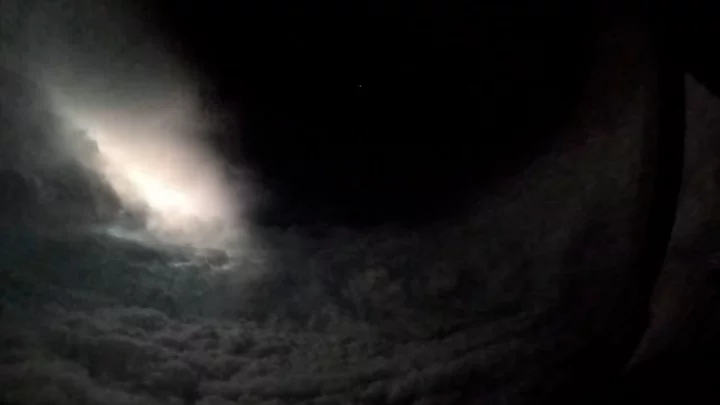
Scientists reveal everyday pleasures that elevate brain performance
Have you got a favourite track? Well, it’s time to turn it up and enjoy the beat with a warm cup of coffee. Everyday pleasures like listening to music or sipping a cup of coffee can elevate brain activity, improving cognitive performance including in tasks demanding concentration and memory, according to a recent study. A group of researchers looked at a new NYU Tandon School of Engineering study involving MindWatch a brain-monitoring technology. MindWatch is an algorithm that analyses a person’s brain activity from data which is collected from a wearable device which can monitor electrodermal activity (EDA). EDA is a measure of electrical changes in the skin triggered by emotional stress, often associated with sweat responses. In the study, published in Nature Scientific Reports, participants were made to wear these skin-monitoring wristbands as well as brain-monitoring headbands to complete a range of cognitive tests. The tests were conducted while the participants listened to music, drank their coffee and smelled perfumes reflecting their individual preferences. These tests were completed again without any of those stimulants. Researchers found that both music and coffee significantly influenced participants’ brain arousal, and put them in a “state of mind” that could “modulate their performance in the working memory tasks they were performing,” the NYU press release says. The wearable device found that the stimulates specifically triggered increased “beta band” brain wave activity which is linked to peak cognitive performance. Perfumes also had a slight positive effect, suggesting to researchers that there is a need for further investigation. “The pandemic has impacted the mental well-being of many people across the globe and now more than ever, there is a need to seamlessly monitor the negative impact of everyday stressors on one’s cognitive function,” says Rose Faghih, an associate professor of biomedical engineering who developed MindWatch in six years. “Right now MindWatch is still under development, but our eventual goal is that it will contribute to technology that could allow any person to monitor his or her own brain cognitive arousal in real-time, detecting moments of acute stress or cognitive disengagement, for example. “At those times, MindWatch could ‘nudge’ a person towards simple and safe interventions — perhaps listening to music — so they could get themselves into a brain state in which they feel better and perform job or school tasks more successfully, professor Faghih added. The specific tests used in this study involved a working memory task, called the n-back test which involves presenting a sequence of stimuli to the participants, in this case, images or sounds. It was shown one by one, and people were asked to indicate whether the current stimulus matched the one presented "n" items back in the sequence. This study employed a 1-back test — the participant responded "yes" when the current stimulus is the same as the one presented one item back — and a more challenging 3-back test, asking the same for three items back. Three types of music were also tested out, there was energetic and relaxing music familiar to the participants, as well as novel AI-generated music that reflected the subject’s tastes. Results showed that familiar, energetic music led to the best performance, followed by AI-generated music tailored to the participant’s taste. Coffee and perfume had lesser but still noticeable positive impacts. The MindWatch team wish to conduct further experiments to confirm the tool’s reliability and understand the broader effectiveness of various interventions on brain activity. Researchers have noted that while specific interventions might generally boost brain performance, individual results may vary. The study is published in the journal Nature. Read More ‘The Puss in Boots Effect:’ Women use infant-directed speech when addressing dogs with larger eyes Study reveals one thing to focus on if you want to live to 100 Extreme heat may speed up cognitive decline for people from poorer neighbourhoods Quick, moist and flavourful: Jurgen Krauss’s marble cake Mother whose hot flushes led to leukaemia diagnosis says ‘don’t ignore’ symptoms What happens at a sexual health check-up?
1970-01-01 08:00

Storm chasers capture frightening footage from inside Hurricane Lee
Storm chasers filmed the inside of a hurricane and it looks just as terrifying as you might imagine it would. The footage taken from inside the eye of Hurricane Lee was captured on Friday (8 September) as the storm moved over the Atlantic Ocean. The video taken shows lightning striking inside the Category 4 hurricane, illuminating the cloud wall around it and with the black eye overhead. The stunning clip was captured by the U.S. Air Force Reserve's 53rd Weather Reconnaissance Squadron in Biloxi, Mississippi. They are affectionately known as the “Hurricane Hunters”. As a Category 4 storm, Hurricane Lee has sustained winds of between 130 to 156 mph. The storm was located off the coast of Puerto Rico and was forecast to move northwards. The footage was able to be captured thanks to the squadron’s WC-130J Hercules aircraft. These planes are specifically designed for flying weather reconnaissance and have equipment onboard including sensors and instruments to measure the profile of a hurricane’s wind, temperature and pressure. The Hercules aircraft can stay airborne for up to 18 hours ensuring the crew onboard can record the weather data over a long time period. In a statement released by the U.S. National Oceanic and Atmospheric Administration's (NOAA) National Hurricane Center, they were unable to determine what the impact of the storm might be on the country’s eastern coast yet. The statement read: “It remains too soon to know what level of impacts, if any, Lee might have along the U.S. East Coast and Atlantic Canada late this week.” Hurricane Lee is the fourth hurricane to be recorded during the 2023 Atlantic hurricane season, along with nine other named storms. Sign up to our free Indy100 weekly newsletter Have your say in our news democracy. Click the upvote icon at the top of the page to help raise this article through the indy100 rankings.
1970-01-01 08:00

See Jason Momoa in the first trailer for 'Aquaman and the Lost Kingdom'
The first trailer for "Aquaman and the Lost Kingdom" is here.
1970-01-01 08:00

Sara Sharif death: Pakistan police take children from grandfather's house
The five children were taken by police in an afternoon raid, Sara Sharif's grandfather tells the BBC.
1970-01-01 08:00

Violent Brawl Breaks Out Between Commanders Fan and Ravens Fan at FedEx Field
It got violent quickly.
1970-01-01 08:00

Khalid Latif: Cricketer sentenced over Dutch MP Geert Wilders murder threat
It is thought unlikely ex-Pakistan international Khalid Latif will serve any time in jail.
1970-01-01 08:00

11 Things You Might Not Know About Panda Express
They sell millions and millions of pounds of orange chicken each year.
1970-01-01 08:00

8 Discontinued Halloween Candies You’ll Never Find in Your Trick-or-Treat Bucket Again
A lot of them had something to with candy corn.
1970-01-01 08:00

Black holes may lie even closer to us than we thought, new study finds
A new study has revealed that black holes could be lurking much closer to Earth than anticipated. A black hole in space is when "gravity pulls so much that even light can not get out," NASA explains. "The gravity is so strong because matter has been squeezed into a tiny space. This can happen when a star is dying." Due to no light being present, they are invisible. Only special tools can pick up on them. There are said to be around 10 million to 1 billion mass black holes in the Milky Way, according to Science Alert. However, astrologers only know of about 20 of them. Now, a recent study has revealed that they could be a lot closer to Earth than previously thought after investigating the Hyades cluster, "a group of stars located 150 light-years away". In a statement, astrophysicist Stefano Torniamenti of the University of Padua explained: "Our simulations can only simultaneously match the mass and size of the Hyades if some black holes are present at the centre of the cluster today (or until recently). The Hyades with hundreds of stars is said to be approximately 625 million years old. Due to its packed environment, "higher rates of collisions and mergers" are expected. At 153 light-years away, it is considered the closest star cluster to Earth. Researchers were able to observe two or three black holes in the Hyades, which are either still present or ejected less than 150 million years ago and hovering around the outskirts. "This observation helps us understand how the presence of black holes affects the evolution of star clusters and how star clusters in turn contribute to gravitational wave sources," Professor Mark Gieles of the University of Barcelona said. Sign up for our free Indy100 weekly newsletter Have your say in our news democracy. Click the upvote icon at the top of the page to help raise this article through the indy100 rankings.
1970-01-01 08:00

Denmark country profile
Provides an overview of Denmark, including key dates and facts about this European country.
1970-01-01 08:00

The 25 best goalkeepers in world football - ranked
90min runs down the best 25 goalkeepers in the world based on form and reputation.
1970-01-01 08:00

Mother says ‘don’t ignore’ symptoms after persistent hot flushes led to leukaemia diagnosis
A mother who felt she was being “eaten away” after hot flushes led to an incurable blood cancer diagnosis in her late 50s has urged women not to ignore symptoms. In the summer of 2022, Barbara Geraghty-Whitehead, 58, a school inclusion manager who lives in Cheshire, began to experience hot flushes, dizziness and she developed an ear infection. She said she “put it to the back of (her) mind”, but her symptoms persisted – and eventually, after months of hesitation, she visited her GP in September 2022 and underwent blood tests. Within a matter of hours, she received a phone call from her doctor, saying that they were concerned about how high her white blood cells were and that they suspected it could be cancer. One week later, after further tests, Geraghty-Whitehead was told she has chronic myeloid leukaemia (CML) and it is incurable. “You say you want to carry on as much as normal, but from that second nothing else was going to be normal anymore,” she told PA Real Life. “I wanted to go in and for them to say, ‘No, it was a mistake, it’s something else,’ but they didn’t, they said it was CML.” Geraghty-Whitehead started taking chemotherapy tablets that same day – and despite experiencing side effects of fatigue, nausea, acid reflux, and a loss of taste, nearly one year later she has responded well to treatment and has been able to see her daughter get married in Cyprus. After nearly ignoring her own symptoms, she wants to encourage others not to “make excuses”, as “people need to know the signs so they can get diagnosed early”. “When I was first diagnosed, you don’t know where to start and that in itself is overwhelming, but the support I’ve received has been fantastic,” Geraghty-Whitehead said. “I think about [my diagnosis] every day and it is hard and I do get upset, but now I’ve just got to face the fact that this is the new me. “I’m never going to be the person that I was before but I’m going to recreate the new me.” Geraghty-Whitehead said she almost ignored her cancer symptoms and attributed her hot flushes to warm weather and “thought no more of it”. She said she did not think it was related to menopause, as she had already been taking hormone replacement therapy (HRT) patches for years to treat her bone pain. “I started not feeling right and I couldn’t figure out what it was, but I didn’t do anything about it – I just left it,” she explained. She added: “I never ever got hot flushes. Even though I was put on HRT patches, it was mainly for my bone pain, so I just put it to the back of my mind and I thought no more of it.” Looking back now, she realises she should have acted sooner – but on September 16, she visited her GP and underwent blood tests. Days later, on the day of the Queen’s funeral, she found herself sat in an empty hospital waiting room, preparing for further blood tests – and by the end of that week, on September 23, Geraghty-Whitehead received the news she has CML and the following minutes felt like “a blur”. “Everything happened so fast, it was just like a roller-coaster,” she said. “I think it was worse waiting for the blood test results because I didn’t know what type of cancer it was, whether I was going to live, whether I was going to die. “But all I wanted was to get the very first tablet into my body, as I felt like I was being eaten away because it was in my blood and your blood travels everywhere.” Geraghty-Whitehead started treatment the same day she was diagnosed, which she said was the “first positive move”. Although she was told her CML is incurable, doctors reassured her other patients had responded well to the chemotherapy tablets she needed to take daily, and this gave her hope. For more information and support, visit Leukaemia Care’s website here: leukaemiacare.org.uk Read More 9 arthritis myths we all need to stop believing What happens at a sexual health check-up? 9 key signs of leukaemia, as awareness is called ‘non-existent’ Cancer-hit dad who planned own funeral outlives three-week prognosis What happens at a sexual health check-up? 9 arthritis myths we all need to stop believing
1970-01-01 08:00
